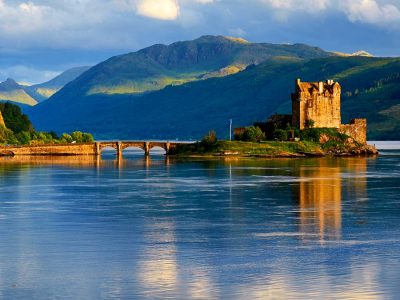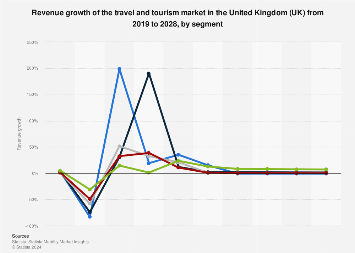The next Rugby World Cup is being held right across the Channel in France, with the France v New Zealand match kicking things off at the Stade de France in Saint-Denis on Friday, September 8. For the next two months or so, until Saturday, October 28, there will be games held in Parisian suburb Saint-Denis, Marseilles, Lyons, Lille, Bordeaux, Saint-Étienne, Nice, Nantes and Toulouse.
The tournament is administered by World Rugby, and runs every four years. The winner of the last event, in 2019, was South Africa. “The game they play in heaven” is sure to draw huge crowds, with England hoping to repeat their 2003 triumph. Here’s everything you need to know about the Rugby World Cup 2023, from how to buy tickets to where to stay.
Main photo: France rugby fans ready for action at the 2019 World Cup in Tokyo (Getty Images)
Where is the 2023 Rugby World Cup?
The 2023 Rugby World Cup is being held at nine stadiums across France.

Stade de France (Getty Images)
1. Saint-Denis, Paris
Venue Stade de France
The Stade de France is the spiritual home of French rugby. It’s the largest stadium in France by some margin, capable of holding about 80,000 spectators, and famous for its formidable atmosphere; the noise inside on match day can be absolutely deafening.
It’s hosted a number of major championships, including most recently the Uefa Euro 2016 men’s football final between Portugal and France. The stadium is located in Saint-Denis, effectively a suburb of northern Paris, and will host keynote games including the tournament’s opening match as well as the final. It’s not the prettiest part of town, but it’s well connected to central Paris by local RER train lines B and D, as well as Metro lines 12 and 13 and tramways T1 and T8.
Where to stay Paris’ decent public transport network means there’s no real reason to stay nearby, unless you want to avoid the inevitable crush on public transport on match days. The Saint-Ouen area is a fun area to base yourself in — it’s home to Paris’ biggest marchés aux puces (flea markets). Try the trendy Mob Hotel, with quirky rooms stocked with upcycled furniture (ask for one with a terrace over the courtyard) and a popular bistro-bar on the ground floor.
• Best hotels in Paris
• Best budget hotels in Paris under £150
• Best things to do in Paris

Kayaking in the Parc National des Calanques near Marseilles (Getty Images)
2. Marseilles
Venue Stade Vélodrome
The swoopy, futuristic-looking Stade Vélodrome (the home ground of Olympique de Marseille football club) is just off the busy thoroughfare of Avenue du Prado, and makes a real architectural statement with its organic, rounded stands, although it’s a fairly old ground — the original incarnation of the stadium dates back to 1937.
Though the sultry southern port city of Marseilles has an edgy reputation, it’s actually lots of fun, with a beguiling old quarter, lots of street art and some fantastic museums, including the archaeological treasure trove of MuCEM (Museum of European and Mediterranean Civilisations). The city is perhaps best known as the home of bouillabaisse, the rich seafood stew that has been elevated to gastronomic greatness by legendary restaurants such as Miramar and Chez Fonfon. If you feel like escaping the urban buzz, the Parc National des Calanques is on the city’s doorstep — local guiding companies offer kayaking trips to its secluded beaches, framed by high, chalk-white cliffs.
Where to stay Hôtel Mercure Marseille Centre Prado Vélodrome is a practical option, with pleasant modern rooms, most of which have timber floors, and some of which offer balconies with city views. It’s a five-minute walk to the stadium, and the Metro is nearby with a direct line to Saint-Charles TGV station.
• Best hotels in Marseilles
• Best things to do in Marseilles

The old town of Lyons (Getty Images)
3. Lyons
Venue OL Stadium
In the foothills of the Alps, lovely Lyons is one of France’s most handsome provincial cities. It’s great for exploring on foot and is renowned for its cosy bouchons — the small, traditional restaurants that serve classic Lyonnais cuisine such as quenelles(fish dumplings) and poulet au vinaigre (chicken in vinegar sauce).
The city has plenty of grand architecture to see, including some stonking cathedrals and museums, as well as one of France’s most magnificent central squares, Place des Terreaux. The Confluences area is also well worth a wander, a former industrial zone that’s home to the cutting-edge Musée des Confluences. For the best view over town, head up to hilltop Fourvière, which can be reached by cable car.
Lyons’ matches will take place at OL Stadium, home to the city’s top-flight football team.
Where to stay The stadium is quite a way out in the eastern suburbs — not the best area to stay in. Tram T3 runs direct from Part Dieu station, so finding somewhere near the station is sensible — Radisson Blu Hotel is a fun option, in a distinctive modern skyscraper offering city panoramas.
• Best hotels in Lyons
• Best things to do in Lyons

Café life in the Place du Théâtre in Lille (Alamy)
4. Lille
Venue Stade Pierre-Mauroy
The northern city of Lille is often overlooked by many visitors, which is a shame, as it’s a dynamic place with some fine architecture (best seen on squares such as Grand Place and Place du Théâtre, both of which are likely to be very busy on match days).
Lille has a long and proud brewing tradition, which is likely to endear it to visiting rugby fans — you’ll find a huge selection of local beers on tap around the city, from dark and malty to blonde and citrusy.
Alongside its beer credentials, Lille also has some great art museums — the Palais des Beaux Arts houses the old masters, while the Piscine Musée d’Art et d’Industrie, a former swimming pool, has more modern work.
Lille’s matches will be held at the multi-purpose Stade Pierre-Mauroy, the home ground of LOSC Lille. Built in 2012, the stadium is named after a former French prime minister who was also mayor of Lille. It was designed by the same company behind the epic Millau Viaduct, and has a unique feature — half of the pitch can slide over the other.
Where to stay Stade Pierre-Mauroy is quite far out of the centre, near the campus of Lille University. Hotel pickings are slim nearby, so a better option will be to stay centrally and catch the Metro. Grand Hôtel Bellevue is a historic address with fine views over the city’s central square.

The Pont de Pierre in Bordeaux (Alamy)
5. Bordeaux
Venue Nouveau Stade de Bordeaux
After Paris, the west coast city of Bordeaux is arguably the most elegant in France — esteemed not only for its wine, but also its incredible architecture (most of the old city is a world heritage site, making it the largest Unesco-protected urban area on the planet).
Bordeaux is brilliant for exploring on foot or by bike — don’t miss Cathédrale Saint-André, Place de la Bourse and the educational Cité du Vin, where you can learn all about the world of Bordeaux wine. On match day, medieval Saint-Pierre and the riverside quays of Chartrons will be atmospheric areas to hang out in and catch the game if you haven’t got a ticket.
Bordeaux’s purpose-built stadium (also known as Matmut Atlantique for sponsorship purposes) is on the northern side of the city near Parc Floral. Built for the Uefa Euro 2016 championships, it’s an unusual structure, faced in slender steel pylons that either daringly expose its construction methods or make it look like it’s permanently encased in scaffolding, depending on your point of view. It’s the brainchild of Stefan Marbach, who also designed the national stadium for the 2008 Beijing Olympics.
Where to stay The smart Novotel Bordeaux Lac is located very near the stadium, and has a pool; alternatively, you could stay in a more central hotel and catch Tram C to the match.
• Best hotels in Bordeaux
• Best things to do in Bordeaux

Clermont supporters arrive for a match at Stade Geoffroy-Guichard in Saint-Étienne (Getty Images)
6. Saint-Étienne
Venue Stade Geoffroy-Guichard
Unless you’re a footie fan, you probably won’t be that familiar with the small city of Saint-Étienne, about 40 miles southwest of Lyons, and that’s no real surprise — a post-industrial city with a serious case of urban sprawl, it’s currently the focus of a major urban renewal programme.
The city’s main claim to fame is as the home of AS Saint-Étienne, the city’s football club, who have won the French Ligue 1 title a record ten times (albeit not since the 1980/81 season). It will likely be one of the less popular cities in the early stages, so tickets may be a little easier to come by — and it’s doubly handy if you also manage to bag a ticket for a match in Lyons.
The oldest of the World Cup venues (there’s been a stadium here since 1931), Stade Geoffroy-Guichard is two miles north of the city centre.
Where to stay The quickest way there is to catch a local train from Gare de Saint-Étienne Carnot. The stadium is also easily reached off the A72 motorway. The city is short on exciting hotels — central Novotel Saint-Étienne Centre Gare Châteaucreux is about the best of the bunch.

The Cours Saleya market in Nice (Getty images)
7. Nice
Venue Stade de Nice
The southernmost host city is Nice, the first city of the French Riviera. Known for its sprawling seafront Promenade des Anglais and its many pebbly beaches, Nice is a beguiling place, trendy and tatty in equal measures. Alongside flagship museums like the Musée Masséna and Musée Matisse, it also has a shady, shabby old quarter that feels distinctly more Italian than French. Don’t miss a visit to the madcap morning market on Cours Saleya, which is likely to be very lively on game days.
World Cup matches will be held at the Stade de Nice, about six miles from the centre on the northwest side of the city — not the nicest area, and a bit of a pain to get to. The quickest route is to catch a local train from Nice station to Saint-Augustin, from where shuttle buses run on match day. Alternatively you can drive — the A8 motorway runs right past the stadium.
Where to stay Since you’ll have to travel from pretty much anywhere in the city, you may as well stay somewhere pleasant — try the arty Hôtel Windsor, where the rooms have their own bespoke designs by local artists.
• Best hotels in Nice
• Best things to do in Nice

In the Bouffay quarter of Nantes (Alamy)
8. Nantes
Venue Stade de la Beaujoire
Nantes is one of the smaller cities chosen to host the World Cup matches, and its stadium, Stade de la Beaujoire, holds fewer than half as many spectators as the Stade de France — so you should feel much closer to the action. A crucible of Breton culture and a big student town, the city blends old-town charm with some brutally modern architecture (often in the same street). The Bouffay quarter has the oldest buildings, while the area around Île de Nantes is the place for cool bars and arty goings-on.
Where to stay The stadium is about three miles north of the centre, but easily reached aboard Tram 1. For somewhere to stay, try the modern Okko Hotels Nantes, in a central location near the city’s impressive castle.

Toulouse supporters celebrate the team’s European and domestic double in 2021 (Getty Images)
9. Toulouse
Venue Stadium de Toulouse
Known locally as “la ville rose” (the pink city) on account of the distinctive dusky-red stone from which many of its buildings are built, Toulouse is another stately city with a touch of southern style. Spanning the banks of the Garonne river and the Canal du Midi, France’s longest canal, Toulouse also has the advantage of being perhaps the most rugby-mad of all the nine host venues — the fortunes of the city’s rugby team, Stade Toulousain, are followed with a passion few other places can match. If we had to choose a single city to soak up the full world cup fever, Toulouse would be it. Stadium de Toulouse sits on an island in the Garonne, and is easily reached from the centre — it’s about a 20 to 25-minute walk.
Where to stay Central Toulouse has a great choice of hotels— Hôtel des Beaux Arts is in a superb spot overlooking the river and the Pont Neuf.
When is the 2023 Rugby World Cup?
The Rugby World Cup is taking place between September 8 and October 28. The fixtures are as follows (all times are in local time):
Friday, September 8
9pm France v New Zealand, Stade de France, Saint-Denis
Saturday, September 9
1pm Italy v Namibia, Stade Geoffroy-Guichard, Saint-Étienne
3.30pm Ireland v Romania, Stade de Bordeaux, Bordeaux
6pm Australia v Georgia, Stade de France, Saint-Denis
9pm England v Argentina, Stade Vélodrome, Marseilles
Sunday, September 10
1pm Japan v Chile, Stadium de Toulouse, Toulouse
5.45pm South Africa v Scotland, Stade Vélodrome, Marseilles
9pm Wales v Fiji, Stade de Bordeaux, Bordeaux
Thursday, September 14
9pm France v Uruguay, Stade Pierre Mauroy, Lille
Friday, September 15
9pm New Zealand v Namibia, Stadium de Toulouse, Toulouse
Saturday, September 16
3pm Samoa v Chile, Stade de Bordeaux, Bordeaux
5.45pm Wales v Portugal, Stade de Nice, Nice
9pm Ireland v Tonga, Stade de la Beaujoire, Nantes
Sunday, September 17
3pm South Africa v Romania, Stade de Bordeaux, Bordeaux
5.45pm Australia v Fiji, Stade Geoffroy Guichard, Saint-Étienne
9pm England v Japan, Stade de Nice, Nice
Wednesday, September 20
5.45pm Italy v Uruguay, Stade de Nice, Nice
Thursday, September 21
9pm France v Namibia, Stade Vélodrome, Marseilles
Friday, September 22
5.45pm Argentina v Samoa, Stade Geoffroy Guichard, Saint-Étienne
Saturday, September 23
2pm Georgia v Portugal, Stadium de Toulouse, Toulouse
5.45pm England v Chile, Stade Pierre Mauroy, Lille
9pm South Africa v Ireland, Stade de France, Saint-Denis
Sunday, September 24
5.45pm Scotland v Tonga, Stade de Nice, Nice
9pm Wales v Australia, OL Stadium, Lyons
Wednesday, September 27
5.45pm Uruguay v Namibia, OL Stadium, Lyons
Thursday, September 28
9pm Japan v Samoa, Stadium de Toulouse, Toulouse
Friday, September 29
9pm New Zealand v Italy, OL Stadium, Lyons
Saturday, September 30
3pm Argentina v Chile, Stade de la Beaujoire, Nantes
5.45pm Fiji v Georgia, Stade de Bordeaux, Bordeaux
9pm Scotland v Romania, Stade Pierre Mauroy, Lille
Sunday, October 1
5.45pm Australia v Portugal, Stade Geoffroy Guichard, Saint-Étienne
9pm South Africa v Tonga, Stade Vélodrome, Marseilles
Thursday, October 5
9pm New Zealand v Uruguay, OL Stadium, Lyons
Friday, October 6
9pm France v Italy, OL Stadium, Lyons
Saturday, October 7
3pm France v Georgia, Stade de la Beaujoire, Nantes
5.45pm England v Samoa, Stade Pierre Mauroy, Lille
9pm Ireland v Scotland, Stade de France, Saint-Denis
Sunday, October 8
1pm Japan v Argentina, Stade de la Beaujoire, Nantes
5.45pm Tonga v Romania, Stade Pierre Mauroy, Lille
9pm Fiji v Portugal, Stadium de Toulouse, Toulouse
Saturday, October 14
5pm Quarter-final 1 (winner pool C v runner-up pool D), Stade Vélodrome, Marseilles
9pm Quarter-final 2 (winner pool B v runner-up pool A), Stade de France, Saint-Denis
Sunday, October 15
5pm Quarter-final 3 (winner pool D v runner-up pool C), Stade Vélodrome, Marseilles
9pm Quarter-final 4 (winner pool A v runner-up pool B), Stade de France, Saint-Denis
Friday, October 20
9pm Semi-final 1 (winner quarter-final 1 v winner quarter-final 2), Stade de France, Saint-Denis
Saturday, October 21
9pm Semi-final 2 (winner quarter-final 3 v winner quarter-final 4), Stade de France, Saint-Denis
Friday, October 27
9pm Championship bronze final (runner-up semi-final 1 v runner-up semi-final 2), Stade de France, Saint-Denis
Saturday, October 28
9pm Final (winner semi-final 1 v winner semi-final 2), Stade de France, Saint-Denis

Gare du Nord Station in Paris (Getty Images)
How can I buy 2023 Rugby World Cup tickets?
Tickets for the 2023 Rugby World Cup have already sold out. However, the official resale platform is currently open for fans to buy and sell tickets.
How can I watch the 2023 Rugby World Cup?
Haven’t managed to buy tickets or can’t travel to France? You can still watch the matches at home. In the UK, all of the matches will be shown on ITV. Most games will be broadcast on ITV1 but a handful are also being screened on ITV4. Or alternatively you can tune in online — you’ll be able to live stream the matches on ITVX.
How should I get around France?
France’s fantastic state-owned railway system, the SNCF, is by far the best way to travel between the nine host cities. Trains are fast, frequent, comfortable and — if you book ahead — often very good value. All the nine venues can be reached via high-speed TGV from Paris — the longest journey is to Nice in around five and three-quarter hours, while Nantes can be reached in two and a half, Lyons in two and Lille in just over an hour.
Additional reporting by Qin Xie
Take me there
Inspired to visit France but yet to book your trip? Here are the best packages from Jet2 Holidays and Tui.
Sign up for the Times Travel Newsletter here.










